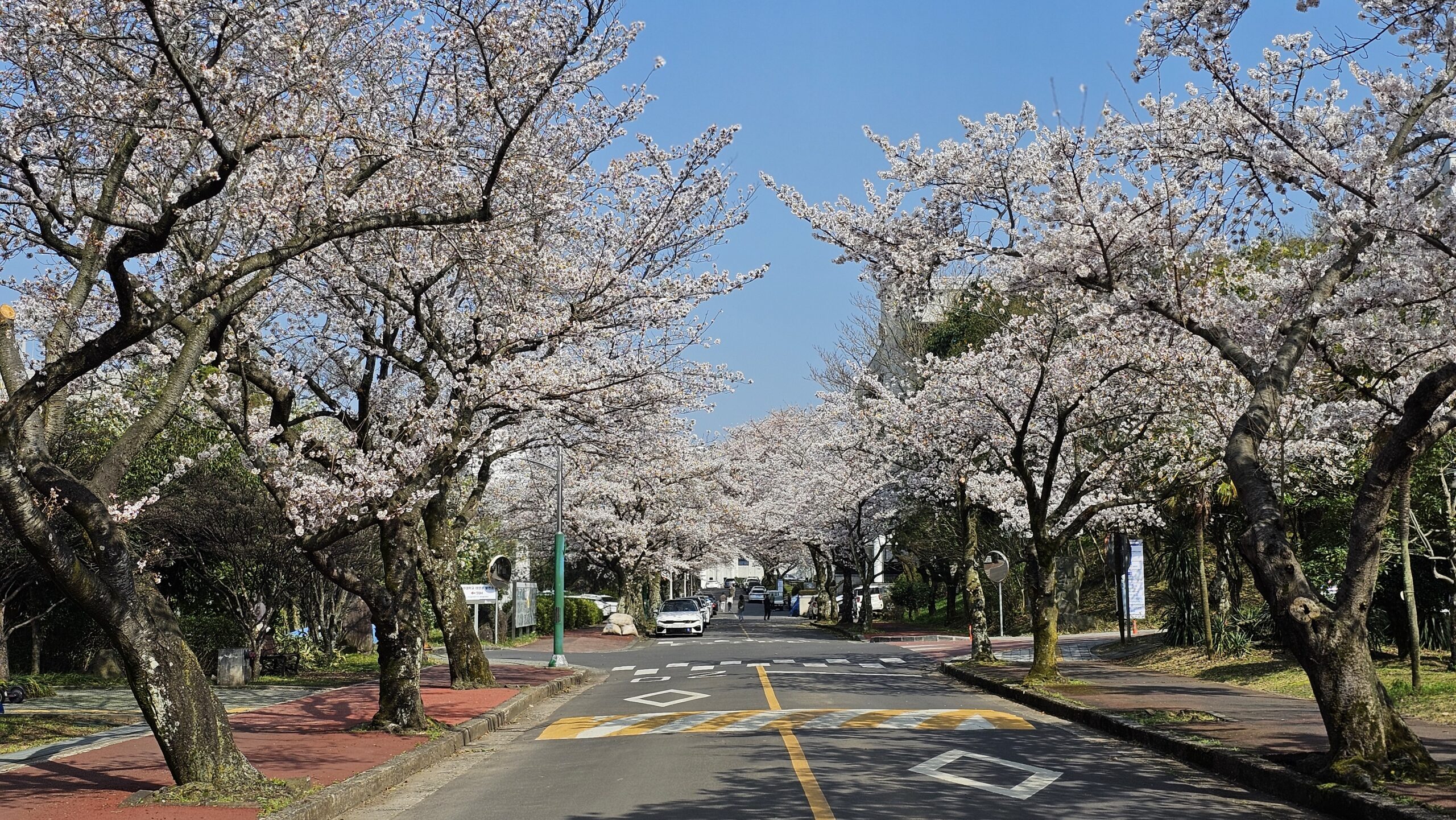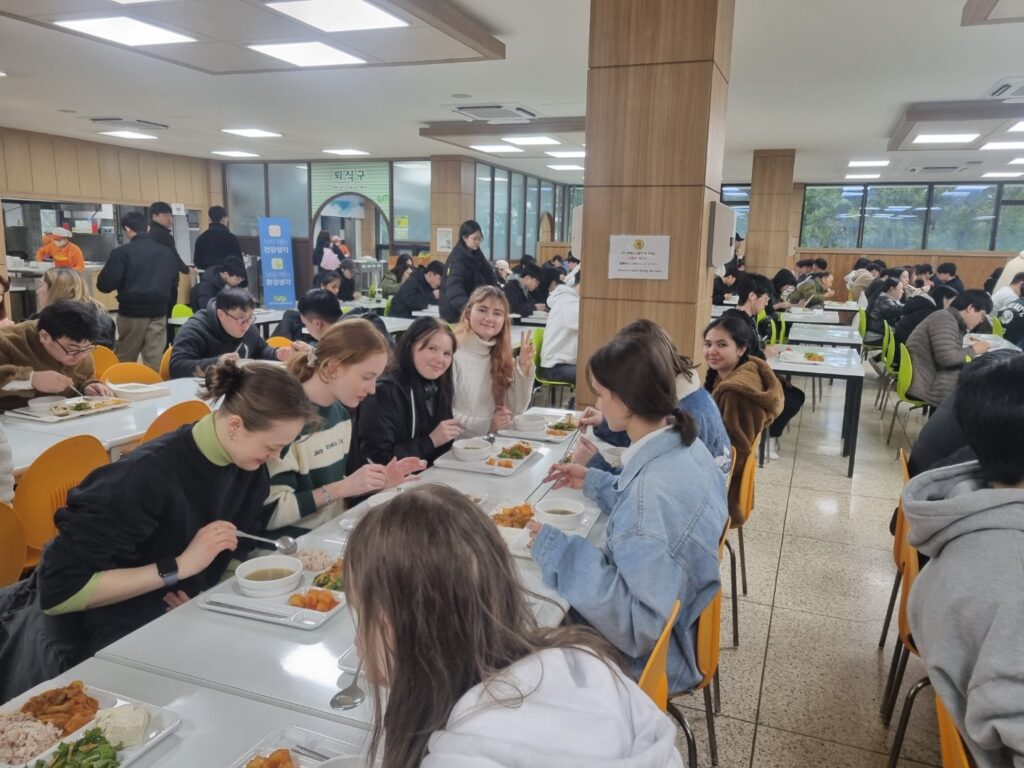
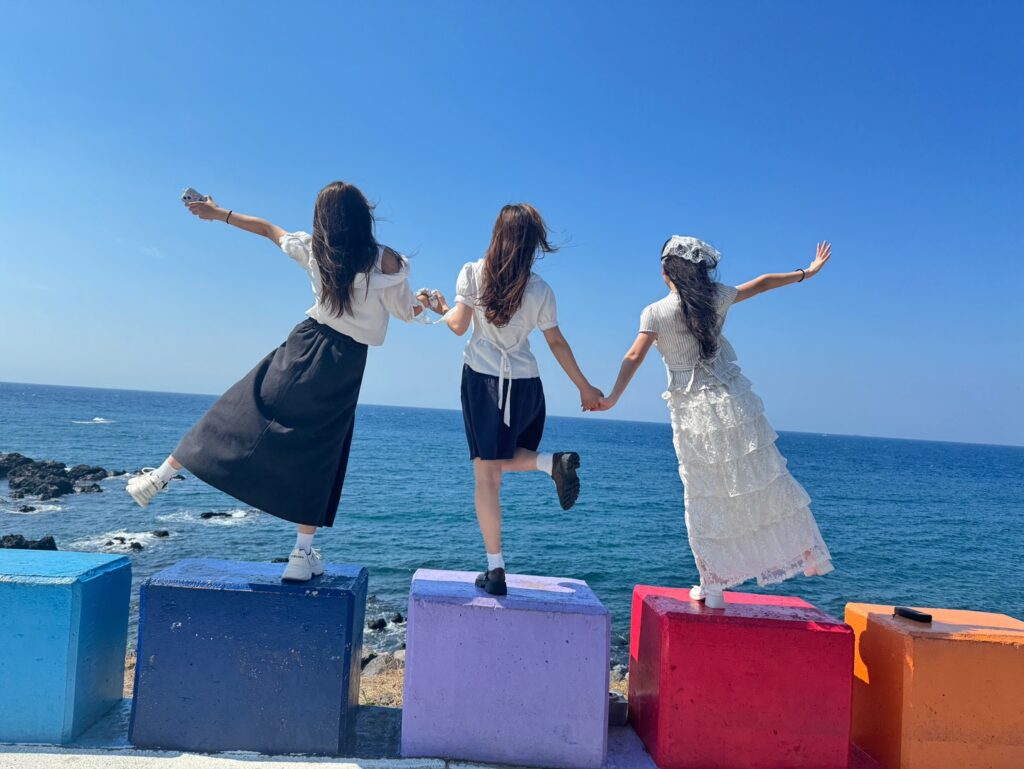
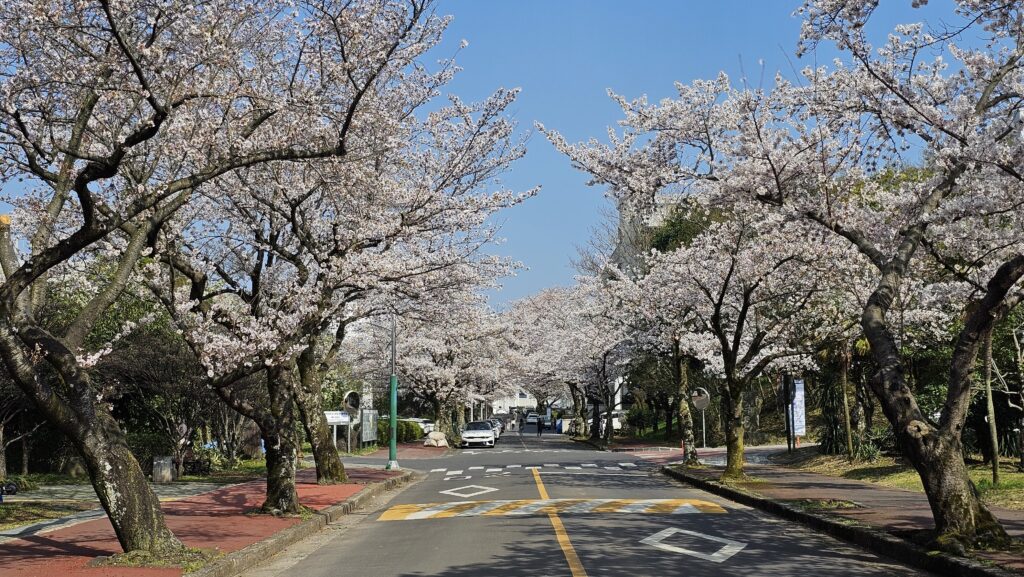
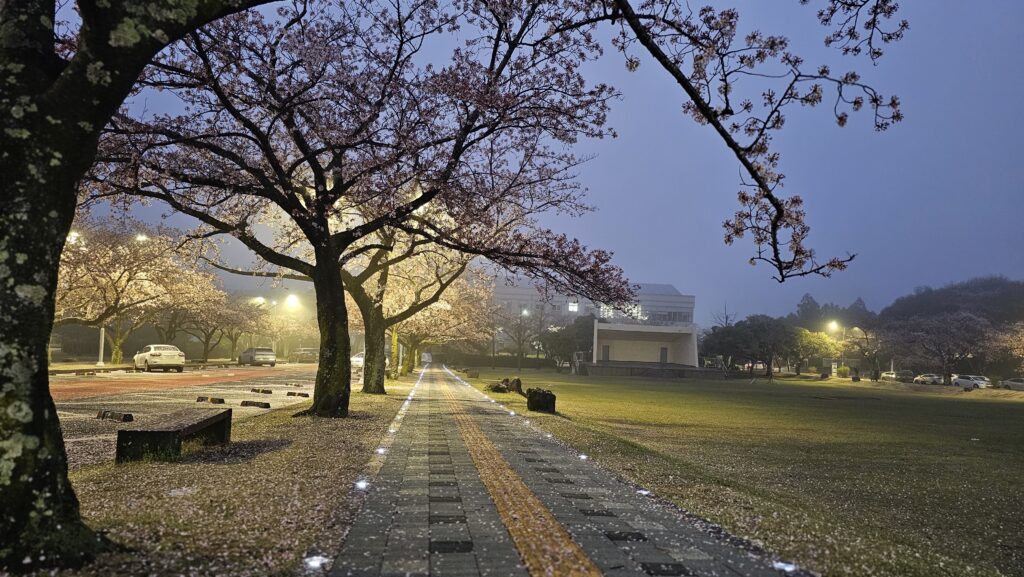
Jeju National University Website: https://www.jejunu.ac.kr/eng/
Ask anyone outside of South Korea about Jeju Island, and chances are, they won’t have heard of it. But if, like so many of our students, they have become swept up in the international wave of Korean culture with K-dramas or K-pop, then they will definitely know Jeju.
Jeju Island is a short flight from either of South Korea’s airports on the mainland. Koreans visit to get away from the hustle and bustle of city life, enjoy natural scenery, hike volcanic mountains, eat the freshest fish and abalone, and visit tea plantations. K-celebrities often film reality shows here, where they are seen enjoying themselves among the beaches and basalt rocks. It’s where Koreans go to relax, and a pilgrimage site for many international visitors today who want to walk in the footsteps of their favorite K-pop idol or Korean celebrity.
As the Faculty International Education Coordinator for the San Diego Community College District for 2025-27, I attended the NAFSA conference in San Diego in May 2025. While looking for future sites for short-term, faculty-led study abroad programs, I met Ms. Eunhee Heo, Assistant Manager, Office of International Affairs, from Jeju National University (JNU).
I learned that in order to stimulate international language and culture educational tourism, JNU has a governmental grant to offer free language and culture programs to international students. She seemed a little shocked to hear that I would be in Jeju in about 2 weeks (apparently that doesn’t happen very often!) and that I would love to visit the campus and learn more about the program.
I have to admit that I am one of those people who has been caught in the Korean culture tsunami. During the pandemic, Squid Game became my gateway drug to the world of fantastic K-dramas and the music of BTS. I visited South Korea for the first time in 2023 and was drawn into the history, art, food, and people. Seoul is a beautiful city and I found it easily accessible for an English speaker.
Traveling to Jeju Island again in 2025, I became fascinated by the haenyeos, women free-divers. Haenyeos, most now over 60 years old, dive in the ocean without breathing equipment to farm the local sea life sustainably. They sell the daily catch locally, providing economic support to their families. Historically, haenyeos used their strong community organization as a tool of resistance during the Japanese occupation (1910-1945). Their work, lifestyle, and songs were recognized as UNESCO Intangible Cultural Heritage in 2016.
When I arrived at JNU in June of this year, I already knew that I wanted to develop a study abroad program for students of the San Diego Community College District that would include Seoul and Jeju Island. Ms. Heo and Director Sihyeon Park took me on a tour of their lovely green campus (by car because it started to rain) and new, well-appointed dormitories. We ate lunch in the cafeteria with students, and visited the campus museum and bookstore.
The Jeju Island government grant that JNU currently offers is a great opportunity for community college study abroad programs, specifically because it significantly lowers the cost for students. Students can enroll for two weeks in their language and culture program for free, or your college can build a custom short-term program that meets the specifications of the grant. In either case, the program and housing are free to all student participants as part of this grant, designed to draw international attention to Jeju Island.
On its own, or combined with other South Korean cities, JNU would make an excellent destination for students who are studying Korean or as part of a custom study abroad trip. I was excited enough about this opportunity that I offered to share and promote this grant to others through the CCIE network. Thank you to Dr. Rosalind Raby for providing the opportunity!
For more information, please contact:
Ms. Eunhee Heo, Assistant Manager, Office of International Affairs
eunhee.huh@jejunu.ac.kr
